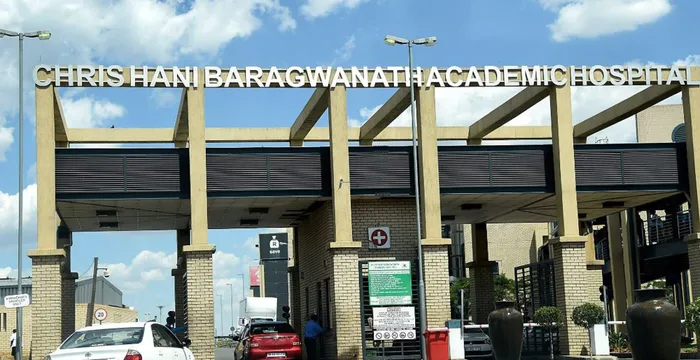Trauma units under pressure

Africa's largest hospital Chris Hani Baragwanath Hospital admitted 24 patients due to alcohol-related incidents. Picture: Nokuthula Mbatha/African News Agency (ANA) Archives Africa's largest hospital Chris Hani Baragwanath Hospital admitted 24 patients due to alcohol-related incidents. Picture: Nokuthula Mbatha/African News Agency (ANA) Archives
On the first day of the unbanning of alcohol, 24 patients required admission to the high care unit, at Chris Hani Baragwanath Academic Hospital in Soweto because of alcohol-related incidents.
And so far, the province has recorded 18 alcohol-related deaths in a week since the country moved to level 3 of lockdown regulation that was followed by unbanning the sale of alcohol.
This is according to Gauteng Health MEC Bandile Masuku, who spoke at a ceremony to receive 20 ventilators donated by the United States Agency for International Development. The donation forms part of the 1 000 ventilators from the US government installed in the hospital so far since the outbreak of Covid-19.
“It was quite surprising that on the first day of lifting the ban on alcohol, we recorded 24 patients that required high care in the ICU on the night. One of the things we were dreading ahead of the easing down of the lockdown, was the pressure our trauma units will be experiencing from alcohol-related injuries," Masuku said.
As we took to the corridors of Chris Hani Bara, we found the casualty section a beehive of activity.
A trauma unit clerk, Ayanda Ntsibande, said in just three days, alcohol-related injuries were significantly more prevalent than non-alcohol-related injuries.
A trauma unit nurse, who refused to be named for fear of reprisals, predicted that with people now having access to alcohol, the system would be impacted heavily.
“As we are dealing with Covid-19 cases, we can't afford to have overcrowding in our emergency department.”
Another nurse, Nomsa Khuzwayo, said: “Things were quiet during the lockdown. As soon as the ban was lifted, we were dealing with motor accident injuries and stabbings."
Khuzwayo said within 24 hours of the sale of alcohol, the number of cases in the trauma unit almost doubled.
“To give you an example, on May 31, we only saw 66 trauma cases, but on June 1, the number doubled. The majority of the patients were drunk, a few patients had gunshot wounds, and injuries from general assaults,” she said.
At the Helen Joseph Hospital, nurses said their trauma unit was under pressure.
“On Monday night, our team tended to cases of drunk persons who had stab wounds from careless behaviour after drinking. We simply cannot ignore the fact that alcohol consumption contributes significantly to the overpopulation of trauma units,” said Jabulile Sithole.

While Phomolo Rasedi noted that hospitals are currently dealing with Covid-19 pressures, and the system will buckle with alcohol-related cases.
“We don't need that burden at a time when public and private health resources should be preparing to receive and treat Covid-19 patients,” said Rasedi.
But according to Prof Charles Parry, the director of the Alcohol, Tobacco and Other Drug Research Unit of the South African Medical Research Council (SAMRC), the abuse of alcohol is only partly about individual behaviour, but to better analyse the issue, a look at upstream drivers of heavy drinking in South Africa is more helpful.
“Among others, these include behaviours of the alcohol industry such as intense marketing of alcohol products and advertising that goes way beyond describing the product, but linking it to financial and social success, and even at times, patriotism, and development of certain products linked to heavy drinking such as ever-larger containers of beer, now 1-litre bottles of beer.
“Secondly, we have a sub-optimal regulatory environment. To reduce heavy drinking in SA, we need a very clear national alcohol policy going beyond that developed by DTI. We should, among other things, focus on control measures such as availability, marketing, pricing/taxing, drinking and driving, treatment and brief intervention,” he said.
Although an alcohol-free South Africa seems impossible for Parry, he does admit that we could do a lot better.
“We are number six globally, in terms of the amount of pure alcohol drunk per drinker per day at 64g of pure alcohol. We need to end the culture of binge drinking - we could certainly move in that direction if we had better control measures.
“Alcohol is a disinhibitor. Many people are used to drinking with others, and there was a fear that if people were allowed to drink in on-consumption outlets, this would increase the risk for community transmission of Covid-19.
“While many South Africans don't drink, 59% of drinkers engage in heavy episodic drinking (binge drinking especially over weekends). This is a risk factor for intentional and unintentional injuries.”
The Sunday Independent